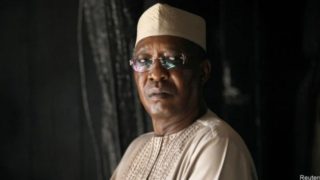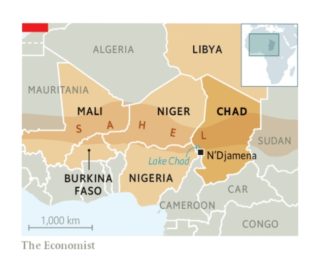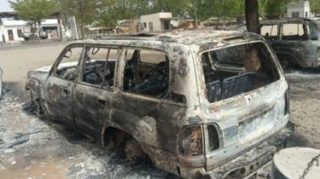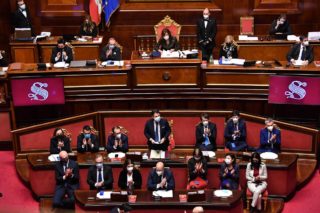HIS PRESIDENCY started with a rebellion. It also ended with one. On April 20th television stations in Chad interrupted their normal broadcasts to show a room filled with uniformed men—medals gleaming and red berets neatly pressed—where an army spokesman announced the death of Idriss Déby, who had ruled Chad for 30 years. The announcement came just hours after electoral officials provisionally declared Mr Déby the winner of a flawed presidential election held on April 11th. Mr Déby, who first came to power after mounting a coup in 1990, reportedly died after being injured on the battlefield while visiting troops fighting a rebel incursion that began on the same day as the election.
Although the exact circumstances surrounding Mr Déby’s death are not yet clear, the transfer of authority that followed it is highly irregular. The government and parliament have been dissolved and a military council led by Mr Déby’s 37-year-old son, Mahamat Idriss Déby, has taken charge. The army says it will rule for 18 months until “free and democratic” elections can be held.
During his three decades in power Mr Déby delivered neither democracy nor development to Chad. Although the country has earned billions of dollars from pumping oil, a fifth of its children die before their fifth birthday. Yet Mr Déby proved adept at winning friends in the West, forming strong alliances with France and America, which saw him as a stable ally in the fight against jihadism. France has a large military base in Chad and Operation Barkhane, its 5,100-strong military operation in the Sahel, has its headquarters in N’Djamena, Chad’s capital. In a statement after his death the French government said that “France loses a courageous friend.”
Of more significance is that Mr Déby’s death threatens to destabilise an already-tottering government that has been battling opposition on many fronts. Since 2015 jihadists of Boko Haram have been attacking across the border from neighbouring Nigeria and Niger around Lake Chad. That violence has pushed thousands from their homes. Chad has also played an important role in the region. At the request of Emmanuel Macron, the French president, it recently sent 1,200 soldiers to help fight jihadists in Burkina Faso, Niger and Mali. With a crisis at home, whether they remain there is now in question.
Meanwhile in northern Chad the government has faced repeated incursions by rebels based in Libya. In 2019 fighters advancing from Libya towards N’Djamena were halted only after French warplanes bombed them. This month’s rebel attack seems to have pushed far deeper into Chad, with fighting reported some 300km north of the capital. Despite this, France refrained from direct involvement, seemingly offering reconnaissance and intelligence support instead. This omission may have been crucial. Besides the president, the rebels claim also to have killed 14 other senior officers in recent fighting.
The third front on which the government has been battling is within the capital itself, where protesters have taken to the streets repeatedly in recent years, most recently in clashes in February over Mr Déby’s decision to run for a sixth term of office and again in the run-up to April’s election. Opposition leaders are unlikely to accept the suspension of the constitution and the handing of power to Mahamat Idriss Déby. In a statement America also emphasised the need for a transition “in accordance with the Chadian constitution.” That contrasts with France, which seems to favour a smooth transition of power initially to the military council led by the junior Mr Déby. He would probably maintain a close relationship with France and keep supporting Western efforts to fight jihadists in the Sahel, says Nathaniel Powell, a military historian at Lancaster University. France acknowledges the need to “establish an inclusive, civilian government” after a “limited period”.
Yet with opposition supporters ready to take to the streets, a mounting rebellion and possible splits in the army, there is “a real fear of civil war right now”, says Cameron Hudson of the Atlantic Council, a think-tank in Washington. Referring to the collapse of Libya after the death of its long-standing dictator, Mr Hudson frets that “this is almost a Qaddafi-like moment.”
By The Economist






